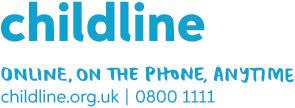I’ve got a short post today from the NSPCC. It’s just a little reminder for parents who might be worried about bullying, both on and offline.

Bullying affects almost every child in some way – whether they’re bullied themselves, they bully others or they see someone being bullied.
All children who are affected by bullying suffer harm, and in some cases the devastating effects can last into adulthood.
While there are no concrete stats on the number of children who are bullied, during 2015-16 Childline handled 25,740 counselling sessions nationally in which a young person mentioned bullying or cyberbullying as their biggest worry.
It can be really distressing for a parent to find out that their child is being bullied, or is picking on others, but it’s important to stay calm and not jump to conclusions.
There are so many reasons why children bully others and it’s not always straightforward. They might not even realise what they’re doing is bullying.
It can be really difficult for an adult, including parents, carers and teachers, to know whether or not a child is being bullied, especially because the child might not want to tell them in case it gets worse.
Signs to look out for could include the child becoming withdrawn, nervous, anxious or even depressed.
Having trouble sleeping, not doing well at school and being scared to go to school are also possible signs.
These NSPCC tips can help adults keep a child safe, whether they are being bullied or need to know what to do if it does happen to them:
- Talk to the child about what bullying and cyberbullying are
- Make sure they know they can ask any trusted adult for help, or call Childline
- Help them relax and find activities that make them feel good
- Teach them how to stay safe online
- Talk to the school or club – even if the child is being bullied outside of school or online
- Take things further if the bullying continues.
Anyone with concerns about a child can call the NSPCC’s adult helpline 24/7 for free on 0808 800 5000 or email help@nspcc.org.uk. Help for children and young people is available through Childline on 0800 1111.

